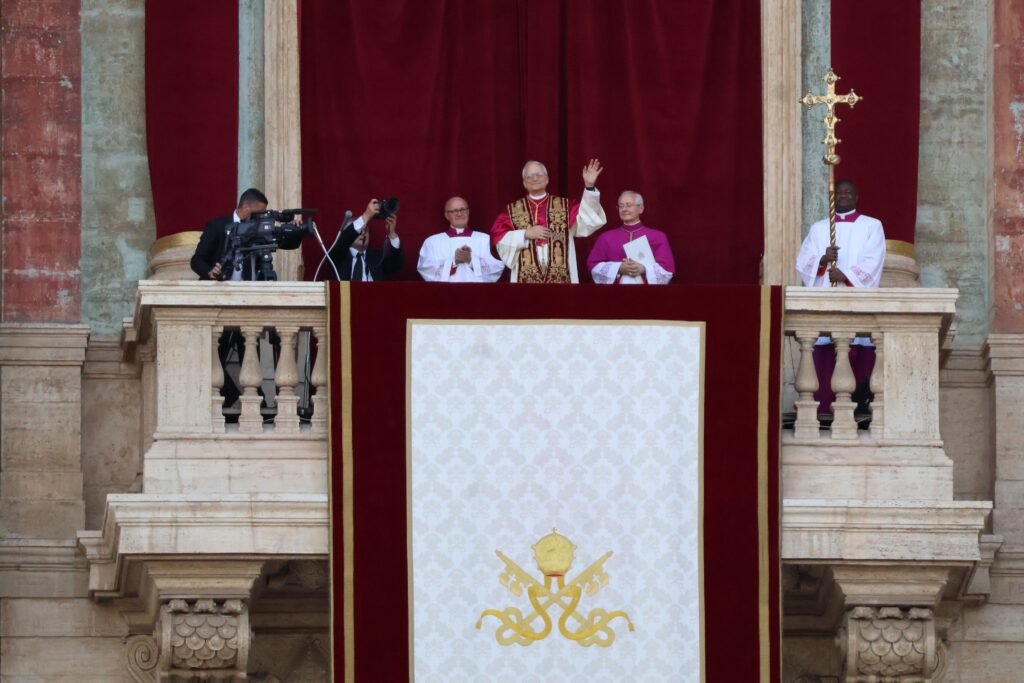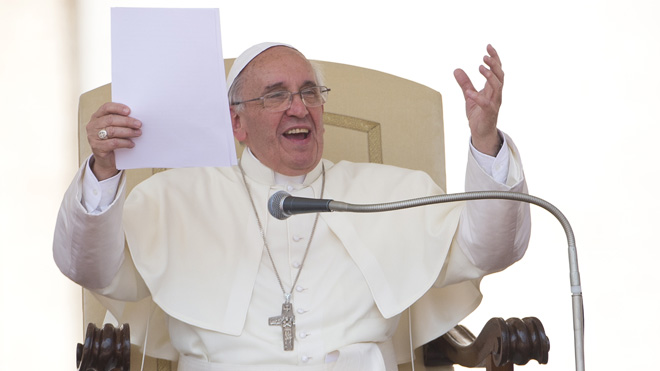Most people who want to delay the confirmation or first Communion of children who are baptized through the catechumenate process believe it is more pastoral for the children to celebrate confirmation or first Communion when they are older, with their peers who were baptized as infants. Two reasons for this run along the following lines of thought: 1) They’re not old enough yet to understand the meaning of confirmation or Eucharist; or 2) If we confirm them and give them Communion now, there won’t be anything to encourage them to stay in the Church as they get older.
The first concern is perhaps connected to a misunderstanding of “age of reason.”
When we say children have reached the age of reason and can participate in the catechumenate process (these are children aged seven or older), it might help if we think in terms of “catechetical age” rather than trying to think of children as adults. When the laws say children should be considered adults for the purpose the rite, it doesn’t mean we catechize them like adults or fail to adapt the rituals to meet the needs of children. It means that there is a certain “age” or maturity level at which children (and adults!) can be catechized to recognize the presence of Jesus in their life and make a commitment to follow Christ in a way that is appropriate for their age. When they can recognize Jesus and say yes to Christ through the catechesis they receive in the initiation process, they are ready to be baptized, confirmed, and brought to the table.
The goal of baptism is participation in Eucharist by sharing in Communion. Thus, confirmation is intimately connected to baptism, and both are the doorway to being welcomed at the Eucharistic table. The Roman Church understood initiation in this way for the first 12 centuries of Christianity. The Eastern Church still expresses this understanding in the radical (meaning “rooted in the original”) practice of baptizing, confirming (chrismation), and giving Communion to infants.
The reason the Western Church diverged from this original practice stemmed mainly from its understanding of the bishop. For the Western Church, the bishop alone could confirm, and thus infants and adults who were not baptized by the bishop had to wait until he could come to their area to celebrate confirmation. Some older Catholics today still remember the days when everyone in their school, from the youngest grades to the oldest, was confirmed whenever the bishop came. Even then, confirmation wasn’t necessarily about age but about the bishop.
The importance of the bishop as the minister of confirmation in the Western Church is why priests must request faculties from the local bishop to confirm anyone who was baptized Catholic as an infant.
In the Eastern Church, the bishop is still important, but they acknowledge this connection through the Chrism oil which the bishop gives to each parish rather than in the actual personal presence of the bishop himself.
For a long while, Eucharist was considered the sacrament of “maturity.” Young children were confirmed some time after the age of reason (whenever the bishop came), and Communion was delayed until junior high age when the children “knew” enough. All the while, from the middle ages up until the 20th century, fewer and fewer people were participating in Communion out of a sense of unworthiness, preferring a more “visual” communion—which lead to the development of the adoration of the Blessed Sacrament.
To encourage more people—adults and children—to participate in Communion, Pope Piux X, in 1910, lowered the age one could receive Communion to seven years old. This prompted parishes to switch the times for confirmation and Communion, moving confirmation to junior high age and eventually to high school. Thus it has really only been during the last 100 years that confirmation came to be seen by Catholics as a sacrament of maturity and the last sacrament of initiation. (Perhaps the Church was also influenced by the Protestant churches for which confirmation is the premier rite of passage for Christians to “confirm” their childhood faith as adults.)
This leads to the second concern expressed by those who want to delay the confirmation of children baptized through the RCIA.
During this last century, and especially today when so many people are noticing an increased absence of youth in the weekly Sunday Mass, many are wondering what will keep the youth involved in the Church. Prior to mid-20th century, preparation for first Communion in the early grades and preparation for Confirmation later were the natural milestones in a young Catholic’s life. But these young people were already involved in the Church mostly because their family, their school, and their neighborhood lived and breathed Catholicism. If you were Catholic in those days, it was just expected of you to be in Church every Sunday—even every day—and to participate in the everyday rituals and disciplines of Catholics.
However, today is different. Today there is a greater expectation that being Catholic doesn’t always mean you’ll be in Church each week. Not all parents who baptize their children are planning to live as a Catholic family in the same way that their own parents or grandparents did, for example going to Church every Sunday, fasting on Fridays, praying at mealtimes, participating in a Catholic group at Church or in the neighborhood.
The world has indeed changed, and being Catholic these days often means something quite different than what previous generations understood. Confronted with this reality, it’s only natural that we look to those standard, gradual, milestones that we or our parents grew up with—confirmation and first Communion—to help encourage our children to remain active in the Church throughout their youth, and hopefully into their adult years.
But putting the burden of keeping our kids in Church upon the sacraments of confirmation and first Communion really does damage to our understanding of these gifts of grace and also distracts us from what is really needed [insert link to Nick’s article] to help our children be full, conscious, active—and willing—participants in today’s Church.
Confirmation and Eucharist are freely-given gifts from God to those whom God calls his children, regardless of their age. As soon as one of God’s own can recognize him and respond to him, the Father is there showering the gifts of the Spirit and the Son upon them. No further reasoning on the part of the recipient is required other than being able to answer yes to these questions: Do you reject Satan? Do you believe in God, the Father? Do you believe in Jesus, his only Son? Do you believe in the Holy Spirit?
The Church’s renewal of the catechumenate and way of initiating children and adults has also renewed our appreciation for the dignity of baptism. In some cases it has also put into question the reasons for celebrating confirmation after first Communion and encouraged diocese and parishes to restore the original order of the sacraments by celebrating confirmation and first Communion together for those who were baptized as infants. [insert link to Pope’s Sacramentum Caritatis]
Rather than fearing that our children whom we baptize this Easter will not come back to the Church if we don’t delay their confirmation, it would be more pastoral to lavish upon them all the gifts that God gives to his chosen ones. Then, as all of us who have received those gifts are called to do, we can help them understand more fully as they grow in wisdom and age the precious gifts they have already received and how they are called to use them in the service of Christ throughout their lifetime.
















